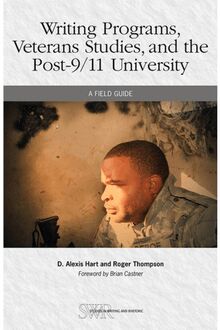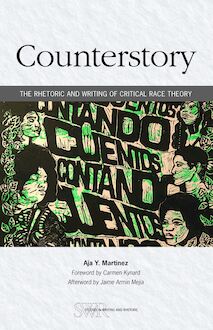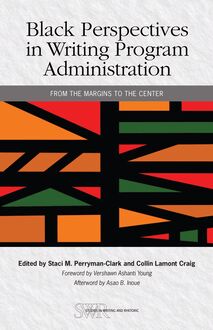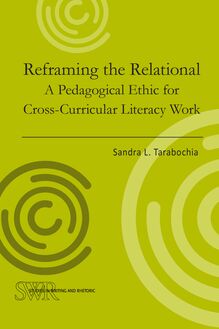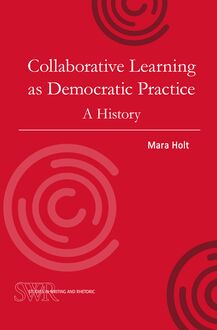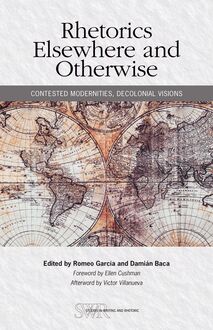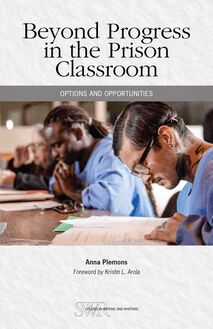Collaborative Learning as Democratic Practice , livre ebook
120
pages
English
Ebooks
2018
Vous pourrez modifier la taille du texte de cet ouvrage
Obtenez un accès à la bibliothèque pour le consulter en ligne En savoir plus
Découvre YouScribe en t'inscrivant gratuitement
Découvre YouScribe en t'inscrivant gratuitement
120
pages
English
Ebooks
2018
Vous pourrez modifier la taille du texte de cet ouvrage
Obtenez un accès à la bibliothèque pour le consulter en ligne En savoir plus
Date de parution
23 janvier 2018
Nombre de lectures
0
EAN13
9780814100608
Langue
English
Collaborative learning is not only a standard part of writing pedagogy, but it is also a part of contemporary culture. Collaborative Learning as Democratic Practice: A History examines the rich historical and political contexts of collaborative learning, starting with John Dewey’s impact on progressive education in the early twentieth century.
In the 1930s, for instance, collaborative practices flourished. In the 1950s, they operated in stealth, within an ideology suspicious of collaboration. Collaborative pedagogies blossomed in the protests of the 1960s and continued into the 1980s with the social turn in composition theory. Twenty-first-century collaborative practices influenced by pragmatism are found in writing centers, feminist pedagogies, and computer-mediated instruction. Mara Holt argues that as composition changes with the influence of ecological and posthuman theories, there is evidence of a significant pragmatist commitment to evaluating theory by its consequences.
Date de parution
23 janvier 2018
Nombre de lectures
0
EAN13
9780814100608
Langue
English
CCCC STUDIES IN WRITING & RHETORIC
Edited by Victor Villanueva, Washington State University
The aim of the CCCC Studies in Writing & Rhetoric (SWR) Series is to influence how we think about language in action and especially how writing gets taught at the college level. The methods of studies vary from the critical to historical to linguistic to ethnographic, and their authors draw on work in various fields that inform composition—including rhetoric, communication, education, discourse analysis, psychology, cultural studies, and literature. Their focuses are similarly diverse—ranging from individual writers and teachers, to work on classrooms and communities and curricula, to analyses of the social, political, and material contexts of writing and its teaching.
SWR was one of the first scholarly book series to focus on the teaching of writing. It was established in 1980 by the Conference on College Composition and Communication (CCCC) in order to promote research in the emerging field of writing studies. As our field has grown, the research sponsored by SWR has continued to articulate the commitment of CCCC to supporting the work of writing teachers as reflective practitioners and intellectuals.
We are eager to identify influential work in writing and rhetoric as it emerges. We thus ask authors to send us project proposals that clearly situate their work in the field and show how they aim to redirect our ongoing conversations about writing and its teaching. Proposals should include an overview of the project, a brief annotated table of contents, and a sample chapter. They should not exceed 10,000 words.
To submit a proposal, please register as an author at www.editorialmanager.com/nctebp . Once registered, follow the steps to submit a proposal (be sure to choose SWR Book Proposal from the drop-down list of article submission types).
SWR Editorial Advisory Board
Victor Villanueva, SWR Editor, Washington State University
Anna Plemons, Associate Editor, Washington State University
Frances Condon, University of Waterloo
Ellen Cushman, Northeastern University
Deborah Holdstein, Columbia College Chicago
Asao Inoue, University of Washington Tacoma
Jay Jordan, University of Utah
Min-Zhan Lu, University of Louisville
Paula Mathieu, Boston College
Nedra Reynolds, University of Rhode Island
Jacqueline Rhodes, Michigan State University
Eileen Schell, Syracuse University
Jody Shipka, University of Maryland, Baltimore County
Vershawn Ashanti Young, University of Waterloo
Staff Editor: Bonny Graham Manuscript Editor: Lee Erwin Series Editor: Victor Villanueva Interior Design: Mary Rohrer Cover Design: Mary Rohrer and Lynn Weckhorst
NCTE Stock Number: 07300; eStock Number: 07317
ISBN 978-0-8141-0730-0; eISBN 978-0-8141-0731-7
Copyright © 2018 by the Conference on College Composition and Communication of the National Council of Teachers of English.
All rights reserved. No part of this publication may be reproduced or transmitted in any form or by any means, electronic or mechanical, including photocopy, or any information storage and retrieval system, without permission from the copyright holder. Printed in the United States of America.
It is the policy of NCTE in its journals and other publications to provide a forum for the open discussion of ideas concerning the content and the teaching of English and the language arts. Publicity accorded to any particular point of view does not imply endorsement by the Executive Committee, the Board of Directors, or the membership at large, except in announcements of policy, where such endorsement is clearly specified.
NCTE provides equal employment opportunity (EEO) to all staff members and applicants for employment without regard to race, color, religion, sex, national origin, age, physical, mental or perceived handicap/disability, sexual orientation including gender identity or expression, ancestry, genetic information, marital status, military status, unfavorable discharge from military service, pregnancy, citizenship status, personal appearance, matriculation or political affiliation, or any other protected status under applicable federal, state, and local laws.
Every effort has been made to provide current URLs and email addresses, but because of the rapidly changing nature of the Web, some sites and addresses may no longer be accessible.
Library of Congress Cataloging-in-Publication Data
Names: Holt, Mara, 1951– author.
Title: Collaborative learning as democratic practice : a history / Mara Holt.
Description: Urbana, Illinois : National Council of Teachers of English, 2017. | Series: CCCC Studies in writing & rhetoric | Includes bibliographical references and index.
Identifiers: LCCN 2017023515 (print) | LCCN 2017045987 (ebook) | ISBN 9780814107317 | ISBN 9780814107300(pbk.) | ISBN 9780814107317 (ebook)
Subjects: LCSH: Group work in education —United States—History. | Group work in education—Social aspects. | Progressive education—United States— History. | Democracy and education—United States—History.
Classification: LCC LB1032 (ebook) | LCC LB1032.H663 2017 (print) | DDC 371.3/6—dc23
LC record available at https://lccn.loc.gov/2017023515
To Ken Bruffee and Jim Berlin
Contents
Preface
Acknowledgments
1. Introduction and Overview
2. Collaborative Pedagogy in the Era of Progressive Education
3. The Era of Civil Rights and the Vietnam War
4. Elbow, Bruffee, Shor, and Antiracist Pedagogy
5. Feminist Pedagogy
6. The Writing Center
7. Computer-Mediated Collaboration
8. A Reflective Conclusion
Notes
Works Cited
Index
Author
PREFACE
MY FIRST FORMAL INTERACTION WITH COLLABORATIVE learning was at Kenneth Bruffee's Brooklyn College Institute in Peer Tutor Training and Collaborative Learning in 1980. I was a writing lab director at Alabama State University, and Bruffee's FIPSE-funded project was for the purpose of disseminating his tutor-training program nationally. Bruffee had “discovered” collaborative learning while training peer tutors as a writing program director at Brooklyn College in the wake of open admissions in the CUNY system. To understand the intellectual growth tutors experienced in his course, he had taken philosophy classes and learned about the seeds of what we would come to know as social constructivism. The Brooklyn College Institute was in some sense a Deweyan think tank: theory and practice in constant reciprocal interaction. As institute fellows, we acted both as students of Bruffee's training class and as teachers discussing our experiences, eventually engaging in reading groups focused on Lev Vygotsky, Clifford Geertz, Richard Rorty, Thomas Kuhn, John Dewey, and Paulo Freire. I met Peter Elbow, who participated as official evaluator for the institute. There were two more summer workshops and a conference at Yale, at which Stanley Fish was a keynote speaker. Along with Bruffee, I continued to collaborate with institute fellows Carol Stanger, John Trimbur, Harvey Kail, and Peter Hawkes. We published together, organized conferences at Bard College, and met often at CCCC. In 2008 Harvey Kail edited a special issue of the Writing Center Journal in honor of Bruffee's work. Most of us contributed to that issue, based on our experience in the institute. Kail's (“Innovation and Repetition”) and Hawkes's (“Vietnam Protests”) articles in that issue are significant historical readings of the institute and its material and political origins.
These experiences motivated me to pursue a PhD at the University of Texas at Austin, where I was fortunate to work with Greg Myers in the year before he left for England. We argued about consensus and the relationship between theory and practice, and I learned from him. My fellow graduate students Hugh Burns, Valerie Balester, Kay Halasek, Fred Kemp, Wayne Butler, and Joyce Locke Carter developed Daedalus software, which created the first (preweb) networked computer classroom based on collaborative principles. While I interacted productively, if briefly, with Greg Myers and my Daedalus peers, the most significant influence on my historical work was James Berlin, who was visiting professor from the University of Cincinnati for a year. We used the prepublication manuscript of his book Rhetoric and Reality (SWR, 1987) as the textbook in the class I took with him. I talked him into adding Bruffee to his list of social-epistemic rhetors in the last chapter. Berlin shared my interest in the relationship between theory and pedagogy, and he taught me about ideology. His book showed me the excitement and significance of history. Lester Faigley, whose work was also influenced by his relationship with Berlin during that year, was my dissertation director, and Berlin, who left after one year for Purdue, served as a member of my committee.
When I began the historical work for my own manuscript, I was surprised to find that collaborative pedagogy had not been only an innovation of Bruffee's, but it had been also welcomed as an innovation in the 1920s, the 1950s, the 1970s, the 1990s (in networked computer scholarship), and most recently in current research on wikis. I found that with each mini-renaissance, collaborative pedagogies have been hailed as a democratic breakthrough. Working with then–graduate student Matthew Vetter, I saw that wiki scholars who cited Bruffee and Trimbur were not aware of the arc of hope and disappointment represented in the networked computer scholarship—for instance, Faigley ( Fragments 1992), Romano (1993), and Regan (1993). I decided that this book could make a contribution.
A cknowledgments
I THANK THOSE WHO HAD AN ENORMOUS IMPACT ON MY WORK: Kenneth Bruffee, Peter Elbow, James Berlin, Lester Faigley, Leon Anderson, and Victor Villanueva.
I am particularly grateful to the SWR reviewers of this project, Krista Ratcliffe and Deborah Holdstein, for their excellent and timely questions, and for Victor Villanueva, for shepherding me through this process and more.
